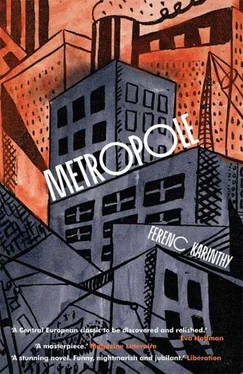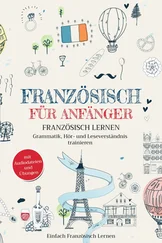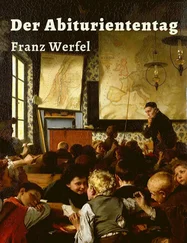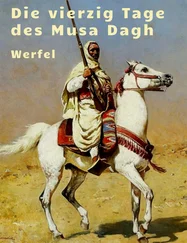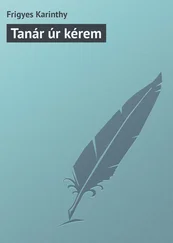The lights started coming on in blocks, each estate or major road in one go, all the tiny pieces slowly fitting together as an entire lit area rose out of the grey-blue. There was no end of it as far as he could see. In the far distance the rows and clusters of illumination melted into a single mass, its edges lost in glimmering fogs and milky galaxies like the stars in the Milky Way whose light comes to us from a distance of thousands or millions of light years… Budai had been a city dweller all his life, the city, for him, being the only possible place of work, routine and entertainment. He was constantly drawn to the great cities of the world: the metropolis! And while the proportions of this one horrified and imprisoned him, he could not deny its sheer enormous urban beauty. Looking down on it from such a height he was almost in love with it.
Budai had accumulated a number of texts since he first arrived, texts that he thought might prove useful in studying the local written language. First were the notices he had ample opportunity to observe on the hotel walls that probably referred to house rules. He also had a newspaper that he had bought on his first Sunday evening in one of the downtown areas but hadn’t yet looked at. For now, however, he was concentrating on the receipt the hotel had given him on his payment of the first bill, that being the only piece of writing to hand that offered some clue as to what it might say. He had already noticed that the totals were indicated in numerals only, not in letters, but he still thought it worth closer study.
The printed form had the figure 921 at the very top among a group of unintelligible notes. Presumably the figure referred to the payer since he was the occupier of the room referred to but whether the rest of it was his name — that is to say if they knew him by name at all — was beyond proof or falsification, at least on the basis of his examination so far. He tried to figure out what each column might stand for and how they had arrived at the total of 35.80. The biggest figure would no doubt be the cost of the room and the rest would probably relate to it, including telephone charges or perhaps the heating or some kind of tax. But he couldn’t find a particularly significant amount: 5.40 was the biggest, the others including 2.70, 3.80 and so forth. There would have to have been some multiplication too, the per-night figure times seven for the week since he had received the bill precisely a week after he had arrived. But despite going through it untold times he was unable to find evidence of any such operation, neither multiplication nor addition.
And so he started looking for the date, checking the top and bottom of the sheet: nothing of the kind there. It was impossible that there should be no date — could it be part of the text, written out in letters? But why? Or was this the custom here?… Then he thought again and concentrated only on the printed columns but no one had filled them in by hand. He supposed that the reason these columns were empty was that they were for services he hadn’t required, such as breakfast, laundry, ironing and so forth. Stuck for ideas, he tried to isolate individual groups of letters hoping blindly to guess what each was, but that was no good of course because he would first have to know how they sounded in the local language. That’s when it struck him how short the words were, most of them consisting of one or two characters and not much more. Might they be abbreviations? In so far as they were, they would have been common enough for him to notice in other texts he had seen about the place, such as electricity or telephone bills, though if that was the kind of thing they were, his task would be extraordinarily difficult, not to say impossible.
So he studied the newspaper instead, examining it, turning the pages over and over wondering what he could learn by studying them. But as he was doing this he had a peculiar and nasty surprise. Up to this moment he had worked on the assumption that the characters here would read from left to right, the lines from top to bottom as in Latin and other European scripts. That is what the bill, the house rules and the phone book he had pinched from the desk-clerk, the one that later disappeared from his room, told him. But now that he examined the paper more closely all kinds of doubts assailed him. For the name of the paper — in much bigger and bolder type — was not only at the top of the front page but also on the back page, precisely as it was on the front. So where to start reading? From the front? From the back? From the top or vice versa? Or maybe it could be read in mixed order, like Ancient Greek, in boustrophedon or ‘ox-turning’ manner where the direction of writing changes in every line, now left to right, now right to left?
Or might it be that this newspaper was produced in a different language using a different script from the others? He tried a random test, picking out a letter here, a letter there and right from the beginning he found correspondences. He understood it less and less… But there was no date here either, not in figures at least, and however he looked there was no way of telling whether this or that group of letters referred to the name of the city or the place where the newspaper was printed. Should he look for it in the title? Below it? Above? It seemed logical that such information should be displayed somewhere near the title, but which title, the one at the front or the one at the back?
Then he thought of something else. He took out his remaining cash and sorted it by denomination. The notes showed portraits of unknown people, some landscapes with unfamiliar buildings seen from a distance, a few allegorical figures and some decorative motifs as most banknotes tended to do. Nor did the coins differ much from coins elsewhere: female heads, sheaves of corn, flowers, birds. He tried to work out the names of numbers by examining the text under the numerals for that is where they should have been on the notes. But there was a lot of writing there of various sorts, the entire banknote crowded with letters, words and phrases of various sizes, including reproductions of scrawled signatures. These might have referred to almost anything: the issuing bank or institution or the state itself, possibly the legislature by whose order the notes appeared. Perhaps he could find the usual formula to the effect that on presentation of this banknote the possessor was entitled to receive such and such amount, that forgery was a punishable offence and a good many other statements that are at times included — but whatever the case there was too much here to be certain of anything.
It looked more promising to study the inscriptions on coins: coins, as far as he could remember — and indeed according to his experience of other countries — usually contained only the numeral, the unit of currency and the name of the state that had minted them. He jingled his change: there were 50s, 20s and 10s. The writing on all of them however was circular, on the perimeter, without any gaps, the end, wherever it was, leading back to the beginning. Given this, he not only failed to discover the name of the currency but even where he should start reading the various characters.
He wasn’t going to get anywhere like this: it was like going around blindfolded, seeing nothing… Should he set about writing down such individual letters as he could discern in the various inscriptions? And what good would that do? It was pointless, he hadn’t enough material to work on, not a single solid piece of information on which he could build a case or develop a view, nothing to go on at all. He needed a dictionary, or some bilingual piece of text, some brochure or other.
He should look for a bookshop then, which is what he did, searching the town until he found one. True, he had a feeling that he had seen one in the course of his earlier explorations, in the quarter behind the building site with the skyscraper — which he found had reached the sixty-ninth floor. The streets were narrow there and the traffic was dense even by local standards, people packed together, the crush before certain shops almost life-threatening. He might have stumbled into the end-of-season sales. He had left home in mid-February and sales were generally held at the end of winter there too. All round him salesmen were crying their wares even out on the pavement, offering suits, knitwear and underwear at a clearly reduced price: shoppers rushed them, surrounded them in tight impermeable groups, the merchandise passing from hand to hand, in and out of boxes and cases as people bargained for them, everything mixed up and confused. The shops too were full to bursting point. Some had pulled down their shutters so as to keep more from entering but there was a scramble even in front of these, people shouting at those inside, clinging to the ironwork, some managing to push the shutters up and forcing their way in, ever more waves of them, pressing through, ever denser, ever more crushed. Here were vast numbers of shoes, carpet slippers and stockings on offer along with many other items. A blind sweet-vendor was repeating his trade cry in a high, falsetto, sing-song.
Читать дальше
